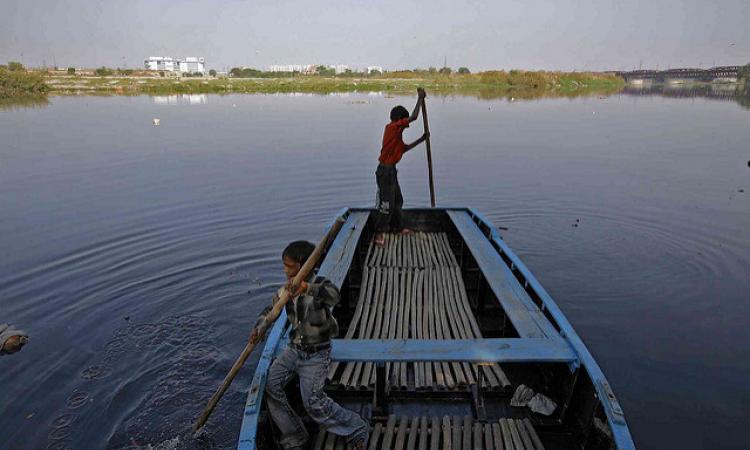
Activists oppose Sri Sri Ravi Shankar's World Culture Festival along the Yamuna flood plains
The Art of Living Foundation is organising a 3 day festival from March 11-13, 2016 on the floodplains of the Yamuna river near Mayur Vihar. 3.5 million poeple are expected to gather together at the festival venue spread over 1,000 acres of floodplains. Environmental activists are fearful that the event will cause an irreversible damage to the entire ecosystem of the region due to the heavy footfall. However, the Foundation has claimed that the event will help campaign for the revival of the Yamuna while the UP Irrigation Department has confirmed that it has warned the organiser against polluting the Yamuna's banks.
Water crisis looms in Maharashtra
Water levels in Marathwada's dams are already down to 6% of capacity with six of the region's 11 major dams at the dead storage level. As part of its fight against drought, the State Government has decided to cut down on water supply to industries in Thane-Belapur, Raigad-Taloja, and Aurangabad regions. Also, the State will observe 'Jal Jagruti Saptah' (Water Awareness Week) from March 16 to 22 across Maharashtra. The State Government is also planning to revive the controversial Konkan irrigation projects despite the probe into these dams being far from complete.
Kerala to battle drought by reviving 600 water bodies across the State
As part of its drought relief plan, Kerala has decided to desilt and remove slurry and waste from nearly 600 ponds across the State this month. It is planning to construct minor check dams instead of providing water to households in tanker trucks and also has disbursed Rs 1 crore to each district for recharging the water bodies in a natural way. As of now, Kannur, Kozhikode, Ernakulam and Pathanamthitta districts have together taken up cleaning of more than 450 ponds and large water bodies.
State of lakes: Raipur fares worst and Bengaluru follows
Per a study conducted by the Centre for Science and Environment, Raipur, the capital of Chhattisgarh has lost 80% of its water bodies, followed by Bengaluru which has lost 79% while Ghaziabad in Uttar Pradesh stands at the third place with a loss of 75% of its water bodies. The loss has been attributed to rapid urbaisation and lake encroachment. The study has also suggested that these water bodies must be saved as they act as a sponge during floods. Their loss raises the fear of floods like the one that occurred in Chennai this past monsoon.
Nano-technology for water purification gets Centre's nod for replication
AMRIT (Arsenic and Metal Removal through Indian Technology), a company incubated by IIT-Madras, has received a nod from the Central Government to take up nano-technology for water purification across the country. The technology is simple and consists of bamboo casing and within it the are the nano-technology polymers that can filter up to 600 litres of heavily-contaminated water per hour. The team from IIT Madras has patented nearly 65 technologies to develop an array of polymers — to filter out arsenic, iron, pesticides and even act as anti-bacterial and anti-viral — catering to domestic consumption and even municipal-level filtering.
This is a roundup of important news updates from March 1 - 7, 2016. Also read last week's policy matters update.